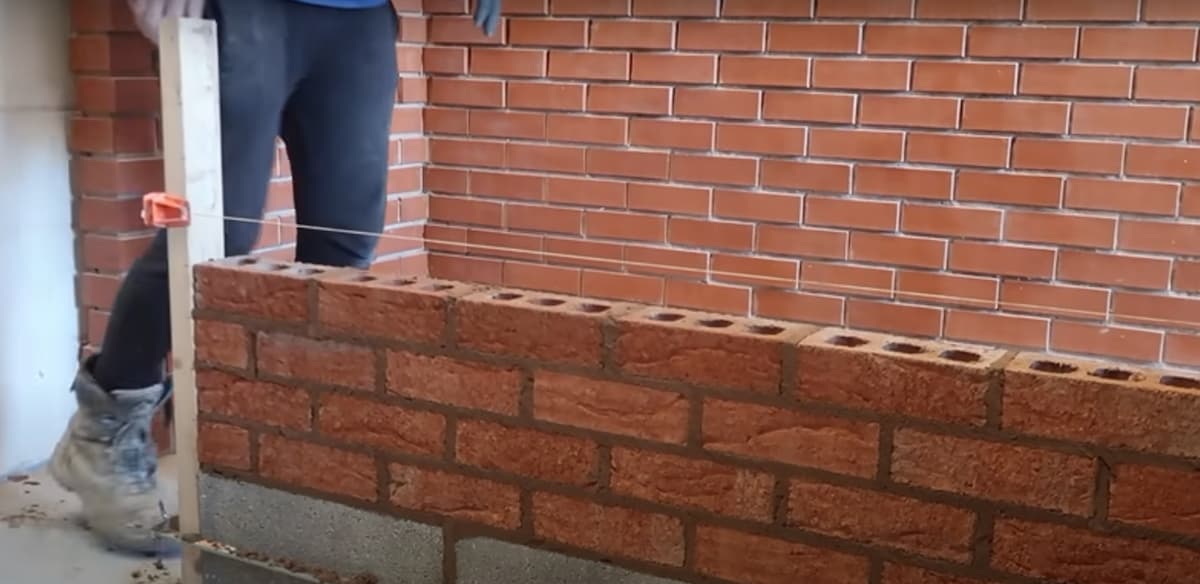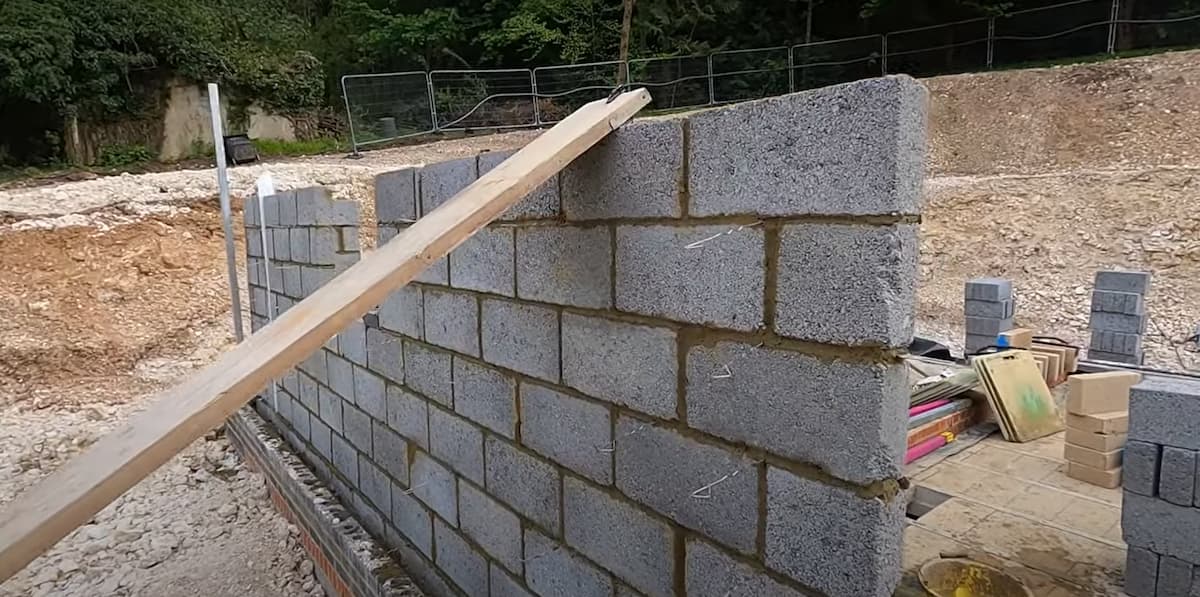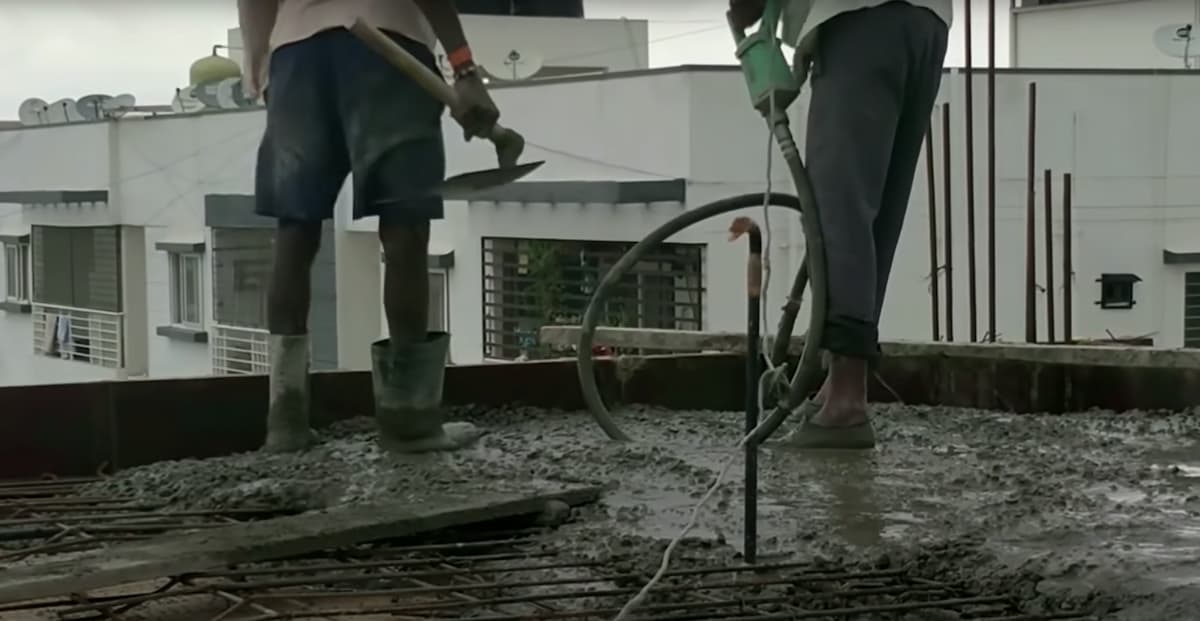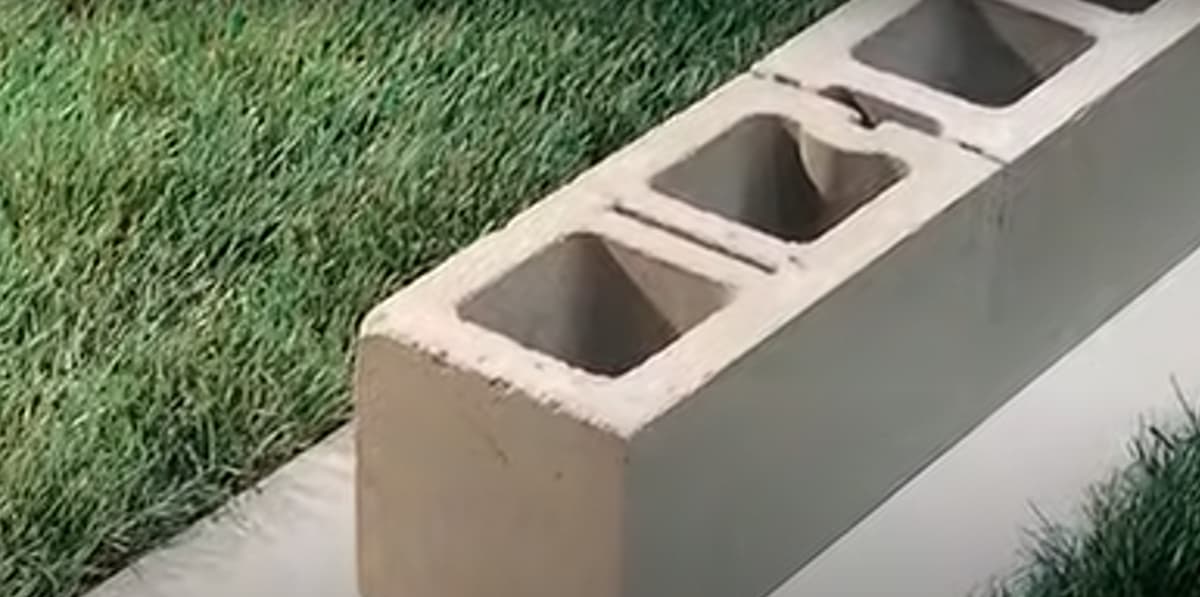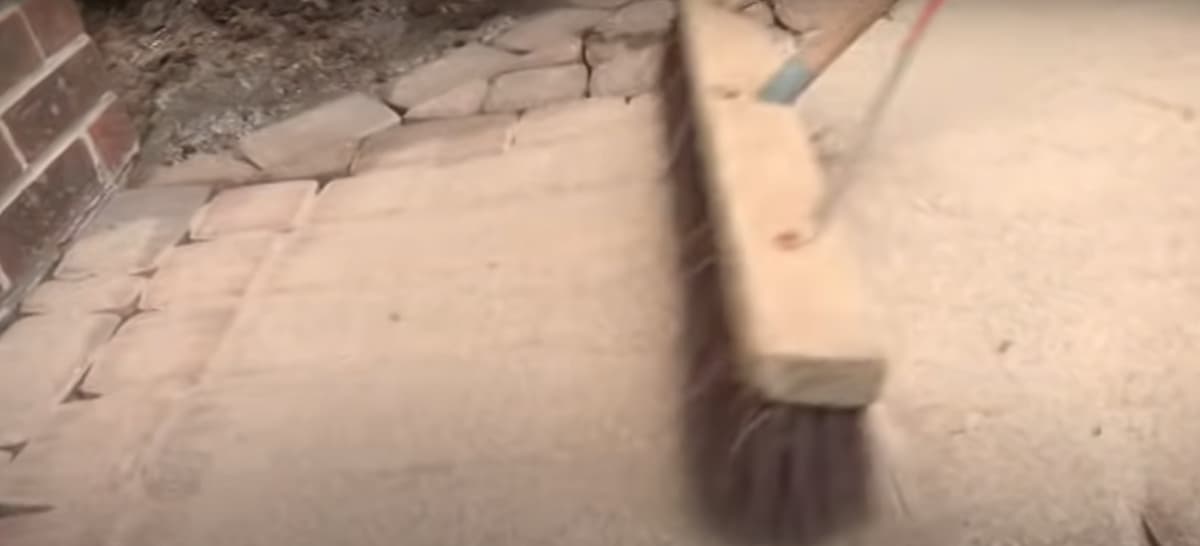
When you have brick pavers in your yard, it can be a great way to add a polished and professional look to your outdoor space
However, over time all kinds of dirt build up on your pavers from leaves, pollen, food debris and more. This adds an unsightly layer of grime that hides the beauty of your paver bricks.
It is important then to use a high-powered pressure washer to clean this buildup off periodically so you can keep the true colour and texture of your paver joints shining through.
First, make sure you purchase a nozzle for your pressure washer that matches the intensity level needed to clean brick pavers. If not washed correctly, they will become brittle and chipped.
Then make sure you buy a good pressure washer that can generate high water pressure. You need to ensure you clean off all the little crevices of dirt and debris.
How to Start Cleaning?
To start cleaning, run your pressure washer from side to side across your brick pavers. Ensure that you overlap each pass by about 1 inch to fully remove the buildup from every paved surface of your paver bricks.
Now spray up and down along each row or stack of bricks as well as any type of projecting details on the brick face such as mortar lines or protrusions between bricks. This ensures you get inside all those small nooks and crannies so nothing is missed and they look absolutely spotless when you finish cleaning them with a power washer.
To dry your brick pavers, always use a towel or cloth instead of letting warm water drip onto them. This can cause damage and make it harder to keep the paver bricks clean over time.
If you do have any residual contamination after cleaning, never use harsh chemicals to remove it as these can eat away at the paved surface of your pavers and wear down their integrity over time.
If done correctly, clean brick pavers with a pressure washer is an easy project that takes very little time but has big benefits for making your outdoor space look clean and polished all year long.
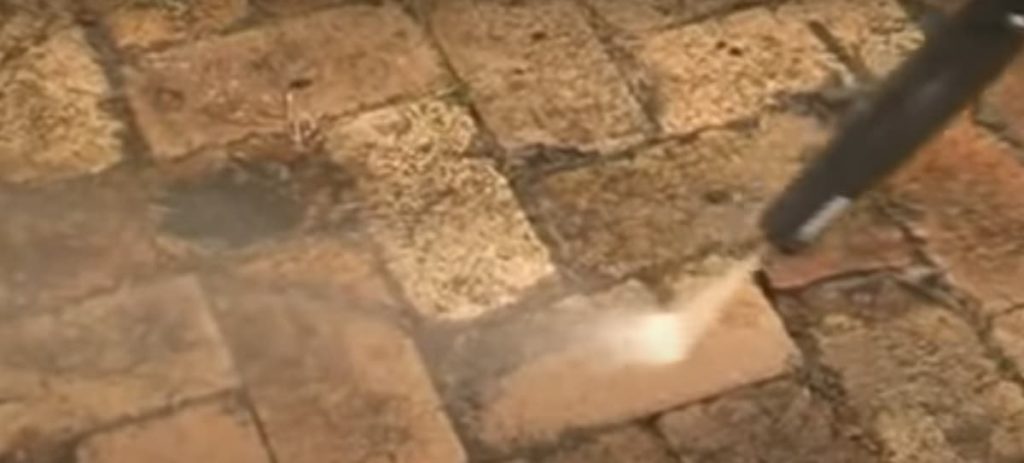
Concrete Patio Pavers Cleaning Solution
A common type of paver is a concrete paver. These types of pavers are popular because they’re durable and come in a variety of shapes, sizes and textures.
Concrete Pavers come in two main types, which are namely hollow or solid. Whereas solid paver stones do not have any open space within the middle, hollow ones contain a centre hole that can be used to pour water through them when cleaning with a pressure washer.
It is important to know how porous your concrete pavers are when purchasing a pressure washer. If your pavers are relatively new, they may have applied a sealant that prevents water from being absorbed into the centre hole of hollow pavers.
Therefore, it is recommended to use a pressure washer that does not have an axial spray tip. A wire brush is also used on the pavers for cleaning. It is important to note that when using a pressure washer, pressurized water may enter into the centre hole that can cause the paver to crack over time.
Always ensure you use low pressure when brushing your concrete pavers so it does not create splashes on the paver surface.
Cement Paver Surface Cleaning Solution
Another type of paver is a cement paver, which can be used for both walkways and paver patios. In terms of cleaning, it is important to know the difference between regular pavers and concrete pavers.
Concrete pavers are often sealed with a water-resistant sealant that protects the clean pavers from absorbing water. However, concrete pavers are often too porous to be pressure-washed with a high-powered pressure washer
First, remove debris on top of the paver by using a broom or leaf blower. Next, soak your pavers with a cleaning solution to loosen up any dirt or grime that may be on the paver surface.
When using a pressure washer to clean cement pavers, always use low-pressure to prevent splashing and ensure you cover every area of your paver. After cleaning with a pressure washer, remove water droplets from the surface of your paver with a towel or squeegee.
Let the paver surface dry overnight. In the morning, apply a sealer to lock in any mild cleaning solution that may have seeped into the pores of your cement pavers.
Ensure you brush over any areas where dirt or grime may be stuck so it does not prevent proper adhesion between the sealant and the paver. If your paver does not have any residual water, you can apply the sealant immediately.
It is highly recommended to hire a professional for cleaning cement or concrete pavers. Professional cleaners often use high-powered pressure washers that may damage the surface of decorative cement pavers.
Is Moss Bad for Pavers?
Moss is not terrible for your bricks but it can be unsightly. If you’re disappointed by how your brick path looks because of the moss, there are ways to take care of it if it’s not too bad.
One way is to power wash the bricks with a pressure washer and then use a scrub brush or hand broom to remove any remaining debris afterwards.
You could also try spreading calcium chloride on your pavers so they don’t absorb as much water, which will keep the moss away.
How do I Get Rid of Moss on My Pavers Naturally?
To prevent moss from growing on your pavers, make sure to clean them regularly with a pressure washer. It is also important not to rinse the moss away because it will just return after rain showers. Instead, use products like calcium chloride if you don’t want to always be cleaning pavers with pressure washers.
Will Vinegar Kill Moss on Pavers?
Vinegar will kill moss on your pavers with a couple of applications. It is best to use a soap cleaning solution when cleaning with a pressure washer in order to prevent the pH from changing in your yard.
How do You Remove Algae from Pavers?
To remove algae from pavers, mix a teaspoon of dish soap and 1 quart of water in a bucket. Apply this mixture to your pavers and scrub with a stiff brush if necessary. Rinse the bricks by running water over them for about 3 minutes.
Finally, pat dry as much as you can with paper towels or rags before adding cleaner on top of the bricks for approximately 15 minutes after runoff occurs. Dry thoroughly before scattering course sand to help absorb water and prevent erosion.
Beware: improperly dried materials may cause moss growth which will be difficult to clean!
Will Bleach Damage Brick Pavers?
Bleach does have the potential to damage your patio pavers if it seeps deep into the pores. You may want to use a detergent with a bleach option when cleaning with a pressure washer to reduce the chance that this will happen.
How do You Remove Dried Cement?
With a pressure washer, you can blast all that old cement away, revealing the new brick pavers beneath it. The job is made easier if you have a power washer attachment with a scrubber type nozzle. When used with detergent, this will break up any cement and get it off better than just water alone.
Use a stiff-bristled handheld brush to scrub stubborn concrete off before applying soap and washing it down with water from the pressure washer wand. Set your high-pressure nozzle at about 30 to 40 psi for best results! Remember to rinse thoroughly when finished washing out all that dust and grime from grungy paver bricks – add fresh water through your powerwasher as needed. This will prevent the dirt and dust from drying on your brick pavers and creating a hard-to-remove mess later.


